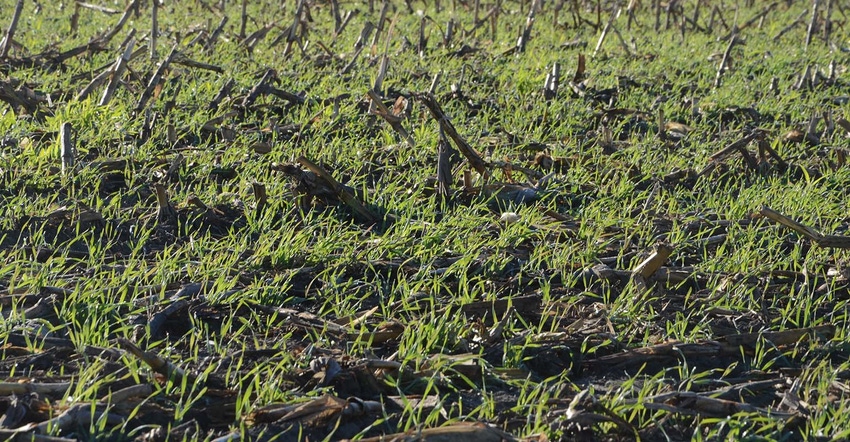May 17, 2021

The National Fish and Wildlife Foundation is collaborating with General Mills to support conservation efforts on working lands in the Great Lakes Basin in Michigan and Wisconsin and the Southern Great Plains, which stretch from Nebraska to Texas.
Through NFWF's Sustain Our Great Lakes and Conservation Partners Programs, this partnership will accelerate the adoption of regenerative agriculture to improve soil heath and water quality, while also enhancing vital habitat for fish and wildlife.
Regenerative agriculture emphasizes a comprehensive, holistic approach to land management that rebuilds soil productivity, strengthens the health of ecosystems and supports community resilience. Regenerative agriculture is a systems-approach to farming and ranching that integrates multiple land management principles, including:
Minimizing disturbances to the soil and biological community
Maximizing diversity of plants and animals
Keeping the soil covered
Keeping a living root in the ground year-round
"Declining planetary health, natural resources and ecosystems, coupled with an increasing demand to feed a growing population, calls for us to move beyond sustainability," said Mary Jane Melendez, chief sustainability and social impact officer, General Mills. "We are proud to partner with NFWF to give local organizations financial assistance to build out resources needed, like education and coaching, to accelerate the regenerative agriculture movement."
The NFWF--General Mills partnership will support the hiring of field conservation professionals who will work directly with landowners to develop and implement planning and stewardship actions that generate economic benefits alongside positive environmental outcomes. Locally led programs will offer assistance that is adaptable to each producer's unique goals, experience, risk tolerance, and other considerations on their path to a regenerative system. By focusing on the Great Lakes Basin and the Southern Great Plains, this effort prioritizes areas that are important for fish and wildlife and advances regenerative agriculture principles in key ingredient sourcing regions for General Mills.
"Our partnership with General Mills represents an extraordinary opportunity to integrate agricultural production with wildlife conservation at a significant scale" said Jeff Trandahl, executive director and CEO of NFWF. "By accelerating adoption of regenerative agriculture, the partnership will deliver important benefits for habitat, water resources, and farmers' and ranchers' bottom lines in two important areas of the Midwest."
Examples of conservation actions to be supported through these grants include the integrated implementation of soil health systems, which may include cover crops, crop rotation and conservation tillage, on-farm riparian buffer and wetland enhancement, beneficial grazing practices, and other grassland management techniques. In addition, this partnership emphasizes the convening of local farmer-led groups to engage in peer-to-peer learning, discussion and conservation planning to advance regional knowledge and adoption of regenerative agriculture principles.
Source: General Mills, which is solely responsible for the information provided and is wholly owned by the source. Informa Business Media and all its subsidiaries are not responsible for any of the content contained in this information asset.
Read more about:
Regenerative FarmingYou May Also Like




